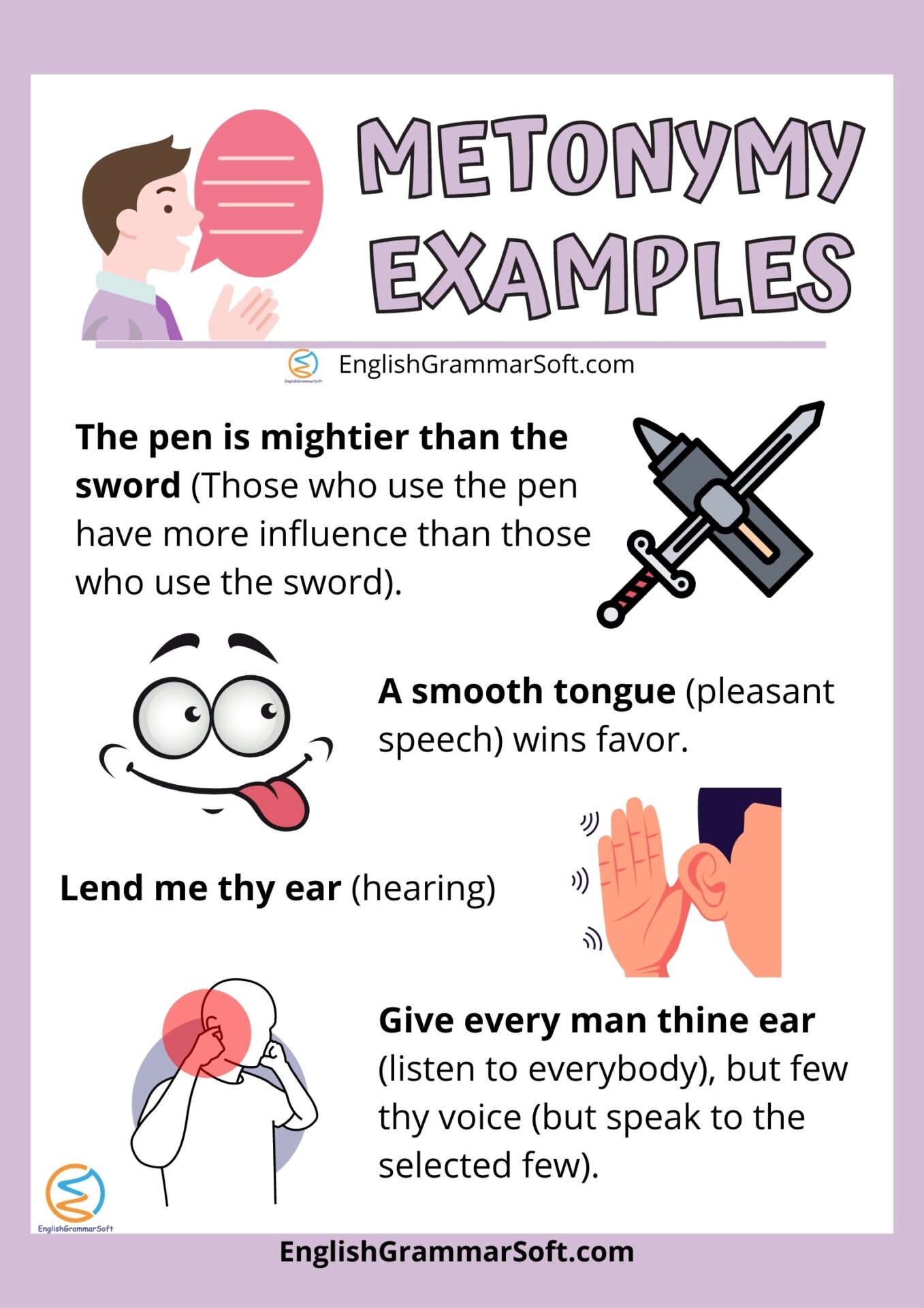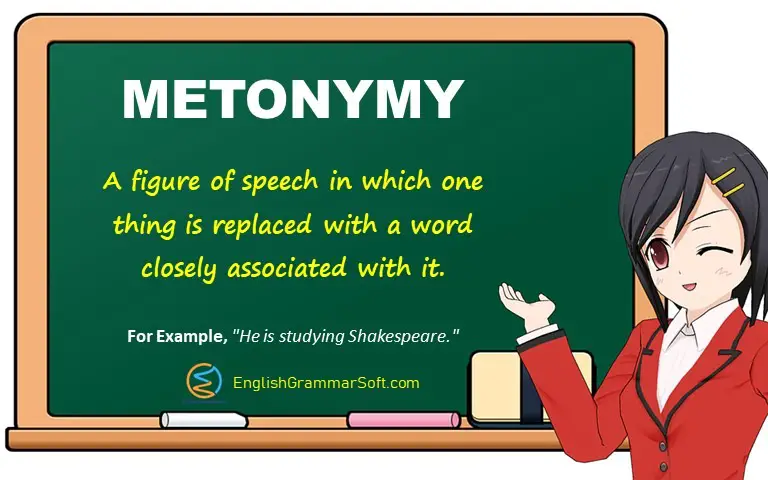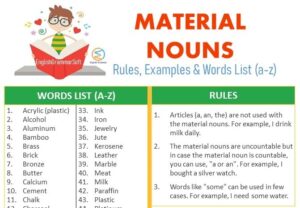Metonymy Classification & Examples | Metonymy Vs. Metaphor
Metonymy
A metonymy is a figure of speech. It derived via Latin from Greek metonymia (from meta-, meaning “among,” with, or after, and onyma, meaning “name”). It was first time used in history in 1573.
Definition
a. A figure of speech in which one thing is replaced with a word closely associated with it.
b. A figure of speech in which the name of an attribute or a thing is substituted for the thing itself. Common examples are ‘The Stage’ for the theatrical profession; ‘The Crown’ for the monarchy; “The Bench’ for the judiciary: ‘Dante’ for his works.
Illustration of Metonymy
Metonymy often appears in news articles and headlines, as when journalists use the term “crown” to refer to a king or queen.
Example
Use of an author’s name to refer to works written by that person. See this sentence,
“He is studying Shakespeare.”
Metonymy is closely related to synecdoche, which refers to the naming of a part of something to refer to the whole thing (or vice versa), as in “We hired extra hands to help us.”
Classification & Examples of Metonymy
Metonymy has been classified under the following heads according to the nature of the accompaniment singled out:-
The Sign or Symbol for the thing signified, as
Sceptre and crown for royal authority or Kings.
“The glories of our blood and state
Are shadows, not substantial things,
There is no armour against fate
Death lays his icy hand on kings:
Sceptre and crown
Must tumble down
And in the dust be equal made
With the poor crooked scythe and spade.”
James Shirley: Death the Leveller
The Instrument for the Agent
- The pen is mightier than the sword (Those who use the pen have more influence than those who use the sword).
- They carried fire and sword (a desolate war) into the enemy’s territory.
- A smooth tongue (pleasant speech) wins favor.
- “lend me thy ear” (hearing)
- Give every man thine ear (listen to everybody), but few thy voice (but speak to the selected few).

METONYMY VS. SYNECDOCHE
If the word being used is referencing a concept, then it’s metonymy, if the word is a part of the whole that is being referenced then it’s a synecdoche. Or, the other way around, if a word is referencing a whole, but is meant to reference a part then it is a synecdoche as well.
METONYMY VS. METAPHOR
The difference between metaphor and metonymy is that metaphor is often used for the substitution of two words. At the same time, metonymy is used for the association of the two words. In metonymy, the word used as a replacement has a similar meaning, whereas in a metaphor this is not the case. Metaphors are generally utilized in poetry, literature, songs, etc. An example of a metaphor is ”chaos is a friend”.
Here the word chaos is used as a metaphor for troubling times. Metonymy is used to describe a particular word. It is famously used in the writing of dialogues and songs.
Further Reading
- Differences between Metaphor and Metonymy
- Synecdoche Examples in Literature
- Figures of Speech with Examples
- Antithesis Examples in Literature
- Euphemism Figure of Speech
- Pun Figure of Speech
- What is a simile in literature? How to write a good simile?
- Types of Metaphor with Examples
- Apostrophe as a Figure of Speech
- Personification with Examples
- Hyperbole Definition and Examples
- Fable Meaning and Examples in Literature
- What is Epigram in Figure of Speech?






